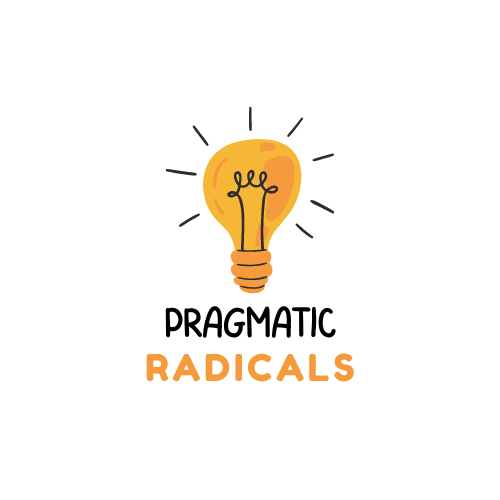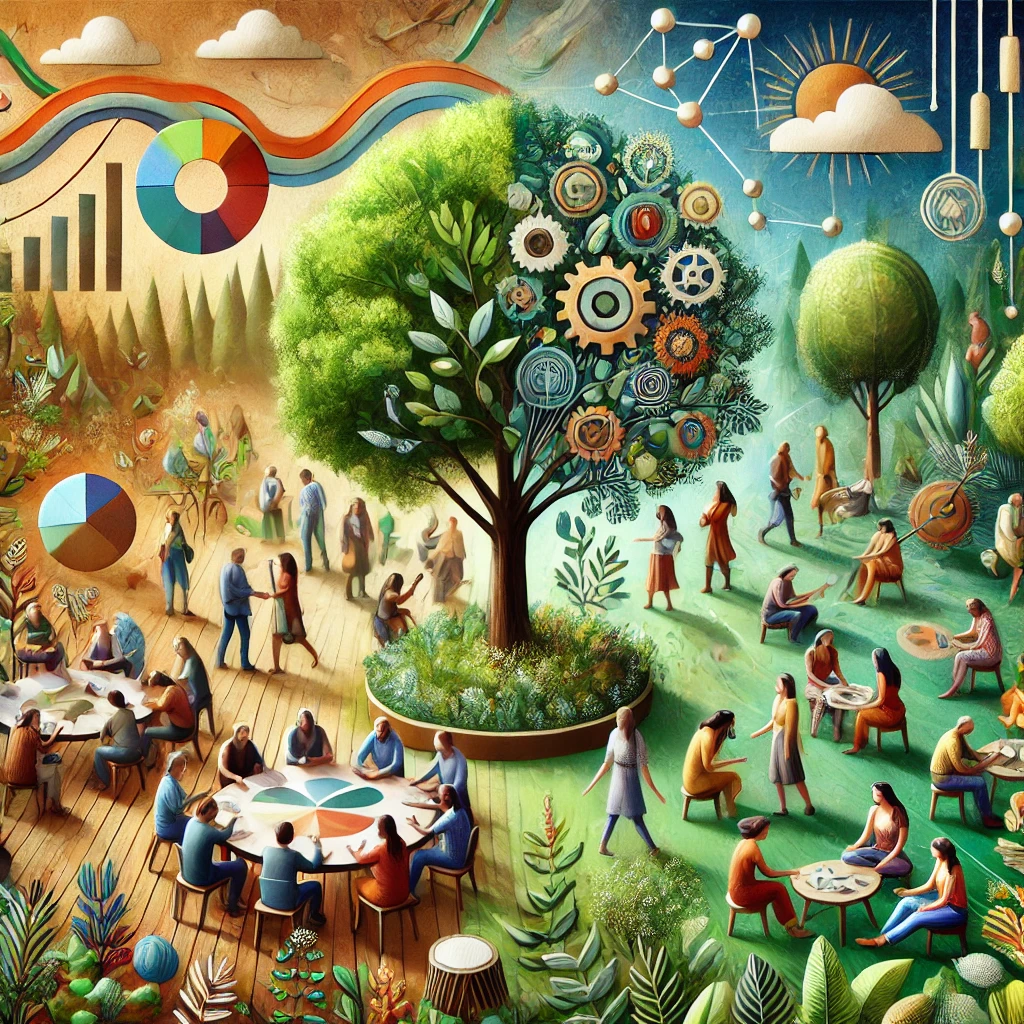This blog was written using AI, based on my own reflections that I’d written up ad hoc over a few months but hadn’t had time to collate into a blog. So what do you think? Does the AI synthesis offer a useful set of insights – is the collation more than a sum of its parts?! NB I tweaked three sentences only and added headings. The accompanying image was also produced by AI.
Beyond the obvious use cases, narrative, storytelling, and creative data collation can be deeply powerful tools, serving as mechanisms to disrupt dominant narratives, rethink ingrained perceptions of justice and equity, and imagine a fairer future. The stories we tell—about power, responsibility, and success—can either perpetuate existing inequities or help dismantle them, making storytelling and learning vital to reshaping our societal systems. In particular, these tools can amplify marginalized voices and offer new pathways toward systemic change.
Narrative
One of the most important insights from my recent work is the growing recognition of framing and narrative in social change efforts. The stories we tell ourselves—and the stories we hear from others—play a significant role in shaping our worldview and, ultimately, our actions. I recently worked on developing a story canvas, which made me reflect on who the “everyday heroes” are in my work: the collaborators, clients, and communities striving for a better world. It also prompted me to think about the “villains” in these stories—organizations, systems, or individuals that protect vested interests and maintain an unjust status quo.
Framing the villains isn’t just about identifying ‘bad’ actors; it’s about recognizing the structural forces that uphold inequalities. For example, large institutions often hold significant power in defining what success looks like, but the ways they measure success are often disconnected from the lived experiences of the communities they aim to serve. This realization has reinforced for me the importance of spotlighting “allies”—the organizations and individuals working in transformative ways to disrupt these systems and inspire change. These allies work toward building emerging systems that are equitable, just, and regenerative.
Storytelling
Another key area where storytelling and learning can intersect is in how we evaluate and capture the impact of social initiatives, particularly when working with marginalized groups. Recently, I had the opportunity to work with a large organisation on a project focused on refugee involvement in designing services. In this context, storytelling was not just a tool for communication but a method for capturing meaningful learning and insight. We employed the Most Significant Change (MSC) methodology, a participatory storytelling technique that surfaces the most meaningful outcomes from the perspectives of those involved.
The MSC approach allowed us to dig deep into the real-life impacts that mattered most to participants, giving them space to articulate their experiences and outcomes in their own terms. This was not just about gathering stories to report on a project’s success; it was about embedding learning into organizational practices. By making storytelling a part of the organizational rhythm, we were able to initiate shifts in how individual and team practices could become more responsive to the needs of refugees. This process emphasized the importance of holding space with humility, recognizing that we must unlearn internalized assumptions about others, many of which are rooted in our colonial histories.
Power
The participatory nature of this storytelling approach also highlighted a broader theme that has been coming up in my work: when we involve communities—whether refugees, young people, or other marginalized groups—in designing solutions, we are not just ticking a box for inclusivity. We are actively redistributing power. This requires moving away from the traditional top-down models of decision-making and instead asking communities what success looks like to them. When they define success, they are more likely to trust and engage meaningfully with the process.
One powerful moment recently occurred during a workshop with senior leaders of a national charity. We explored how sharing power and collaborating with trusted community organizations could unlock new ways of measuring success. Instead of imposing external definitions, these leaders started to see the value in letting community groups lead, building relationships grounded in trust rather than hierarchy.
Creative data
As we rethink our approaches to learning and storytelling, it’s also essential to challenge conventional ideas about what counts as “data.” Creative forms of data collection, such as music, art, and other forms of self-expression, can provide a more authentic and trauma-informed way of capturing the experiences of vulnerable groups. For instance, in a project focused on young people, an organisation’s music team helped us develop non-traditional methods of gathering feedback. These creative approaches enable participants to share their stories without the pressure of formal evaluation structures, which may feel alienating or even re-traumatizing.
Ultimately, the combination of learning and storytelling in social change must transcend the act of merely gathering stories or data. It should focus on building solidarity rather than reinforcing the traditional charity model. Moving from charity to solidarity involves acknowledging historical and present-day injustices, including the colonial legacies that continue to shape our world today. It requires us to confront the barriers—both real and imagined—that stand in the way of achieving true equity.
Solidarity means actively working alongside communities to co-create solutions, not simply “helping” them from a distance. It involves distributing resources, sharing power, and dismantling systems that perpetuate inequality. When we engage with communities on their terms, recognizing their strengths and honouring their contributions, we create the conditions for genuine, lasting social change.
And so…
Learning and storytelling are not just methods for reflecting on the past or understanding the present. They are vital tools for shaping the future. By reframing narratives, redistributing power, and embracing creative approaches to data, we can foster a more just and equitable world. Social change is not just about policy or programs—it’s about the stories we tell and the learning we embed into our everyday practices.

